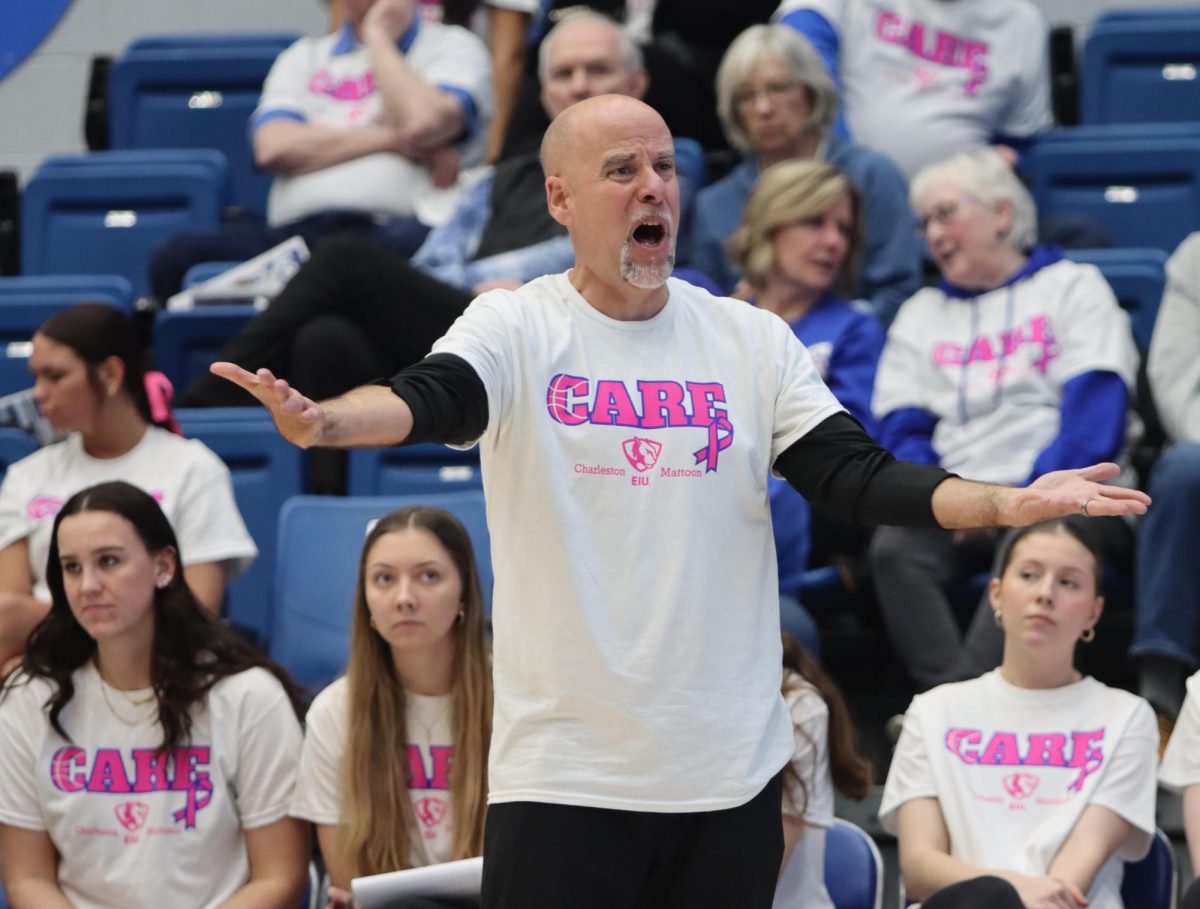Getting to know Blair Lord
Last Friday, Blair Lord, provost and vice president for academic affairs, sat down with Sarah Whitney, news editor for the Daily Eastern News to talk about what he thinks his position means, the places he’s traveled for his job, the faculty contract, and whether he might be Eastern’s next president.
Question 1: What does it mean to you to be vice president for academic affairs?
Answer: First a definition: [I’m the] chief academic officer of the institution. I’ve spent all my life in academics as a faculty member or an administrator. Of course, I’ve always thought I’ve had good ideas to promote academic interests of the institution.
So to be able to be the chief academic officer of Eastern, gave me the opportunity to pursue my own ideas and help advance the institution.
It’s really a rare opportunity for a person to be in. . I felt honored five years ago when I was selected, and I’m still honored to serve.
Question 2: What was your job before you came to Eastern?
Answer: My job immediately before Eastern, I served as vice provost of the University of Rhode Island for 10 years. . As a sidelight, I worked for the same boss for all 10 years, which is rare [in the field].
Question 3: If you could accomplish one thing this semester what would it be?
Answer: I’m looking to realize deeper levels of engagement with my six goals for the University. For example, the first goal – to have first choice programs – requires that each program look within themselves and reflect together on what elements, attributes make them a first choice [for students].
Question 4: Where is the most interested place you have had to travel for your job?
Answer: The most fun place was San Diego when I accompanied some of the Board members to the AGB (Association of Governing Boards of Universities and Colleges) just because San Diego is always fun. [It] has the nicest weather in all the country, glorious restaurants and beautiful waterfront. San Diego is one of my favorite places.
Here the conversation drifted into other places Lord enjoys visiting, which include Seychelles Islands, near Madagascar and Tonga, an island south of Fuji. These places Lord visits as recreation, are not job-related and include chartering a sailboat, which he and three other people sail themselves. This Winter Break he plans on sailing to the Great Barrier Reef.
Question 5: Describe yourself – but as you were as an undergraduate.
Answer: I had a split career as an undergraduate. My lower years, I was probably as confused and uncertain of what I wanted to be as I expect most undergraduates still are. (with a laugh) Hint, hint – an indifferent student.
My second two years, I suddenly got interested in learning. I wasn’t any clearer of what I wanted to be, but I got excited by some of the things I was learning.
Question 6: When the University hires a faculty member, what does it do to ensure he or she is not just qualified but can relate to students?
Answer: Faculty hiring is done on a departmental level. [Each] do different things. At Eastern, it is clear that we are interested in hiring faculty committed to the instructional mission of the institution and are committed to the institution. Different departments do different things to assess this. Some will have them give a presentation to which students are invited, present to a class or have a group of students do an interview with the candidate. And of course every one who is talking with the candidate is assessing [that new hires can relate to students].
Question 7: When it comes to enrollment, how many students are too many?
Answer: Several years ago, I had an ad hoc group try to determine what was the optimum enrollment for Eastern. They came up with a range rather than a single number, and today we are slightly over that range. We cannot take many more students than we have currently and still ensure the qualities of an Eastern education.
Question 8: Explain some of the challenges with the faculty contract negotiations.
Answer: The essential challenge in any negotiations is that each side has a different set of duties and responsibilities. It isn’t a matter of maliciousness; it isn’t even a matter of distrust. But there is an element of competitiveness given the responsibilities of each side and the negotiations is the way you resolve those different expectations in a mutually acceptable way. Sometimes that’s harder and sometimes that’s easier depending on the circumstances of the moment.
Question 9: Would you be interested in becoming the university’s next president?
Answer: I’ve said to several people that I’ve considered the possibility of applying for the president of EIU.
Question 10: Last week you were spotted wearing a T-shirt over your suit. Now, if you become our next president, could you handle wearing a T-shirt [without a suit] occasionally?
Answer: (with a laugh) On rare occasions.












































